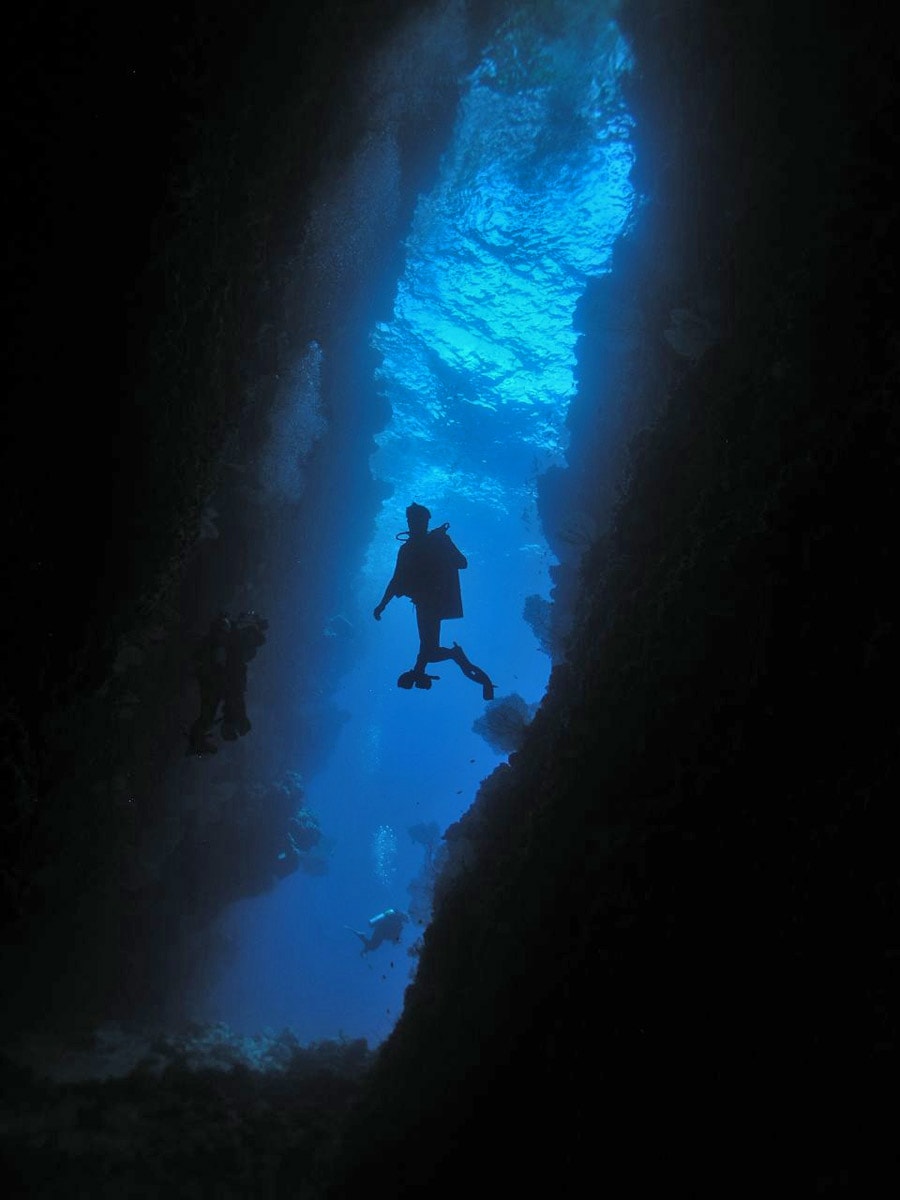Wondermondo 🢖 World 🢖 Wonders of Australia and Oceania 🢖 Wonders of Melanesia 🢖 Wonders of Solomon Islands
Territory
Wonders of Solomon Islands
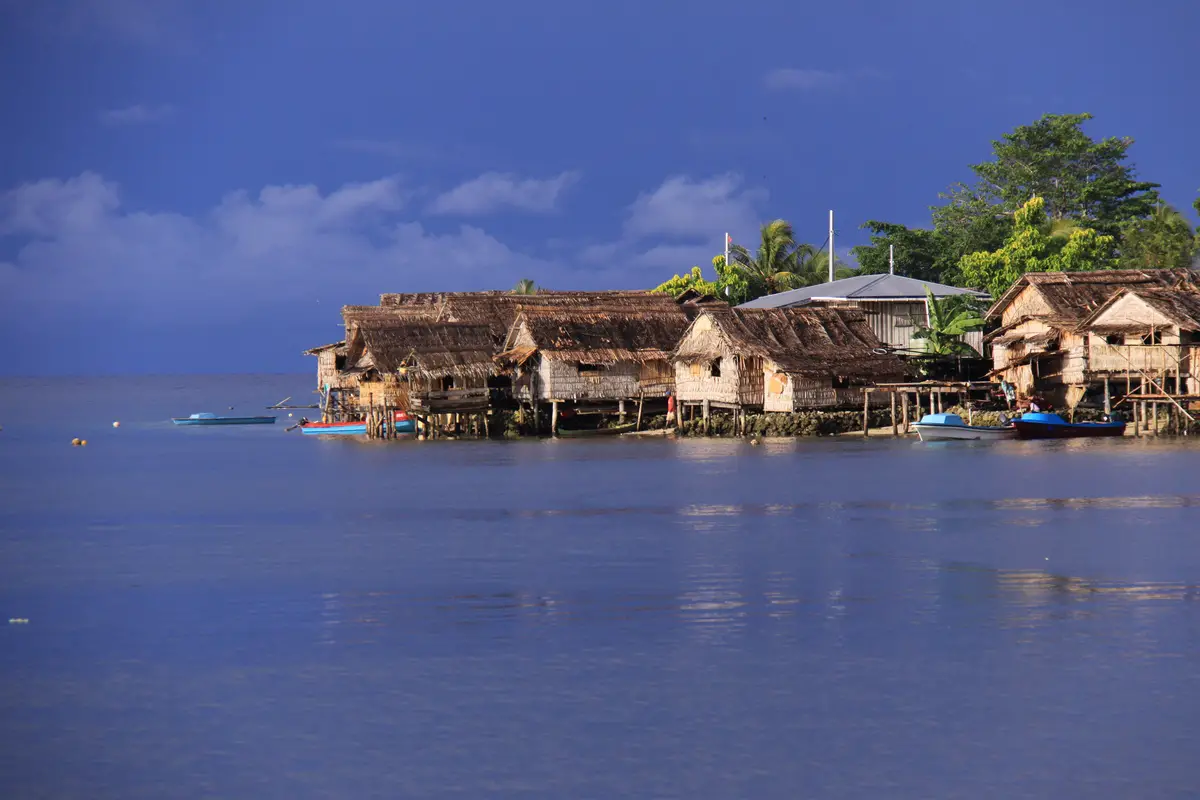
 Highlights
Highlights
Solomon Islands belong to comparatively little-known and little-explored countries of the world. Biological, archaeological, and geological research still provides new exciting information about these islands and many more discoveries are expected in the future.
The most amazing wonders of the Solomon Islands are:
- Biological diversity: numerous species of plants and animals (notably – birds) are found only in these islands. In many places the vegetation cover is highly unusual, visually very impressive.
- Local traditions, archaeological monuments and legends: the archaeology of the Solomon Islands is little known and not much explored. Nevertheless exotic and often menacing monuments in lush jungle settings are well concordant to vivid local legends. Many stories in the Solomon Islands are too unusual to be true and still, there are happening things that let to believe in these stories.
Map with the described wonders
If you see this after your page is loaded completely, leafletJS files are missing.
 Top 25 wonders of Solomon Islands
Top 25 wonders of Solomon Islands
Geological wonders
Poghorovorughala geothermal area
Central Province
Active geothermal area with boiling alkaline springs, boiling mud pots, and fumaroles. In the area are located also some spouts of hot water – low geysers. Many springs produce unusual carbonate-opal-anhydrite deposits. Such alkaline springs are rare.
Mount Maetambe karst area
Choiseul
An area with intense karst processes. There are subterranean rivers and sinkholes. Largely unexplored. Forest contains numerous endemic species, and more finds are expected after speleological research.
Kavachi
Western Province
Unusual, very active submarine volcano. Since the first sighting in 1939, it has elevated above sea level at least eight times and then eroded back.
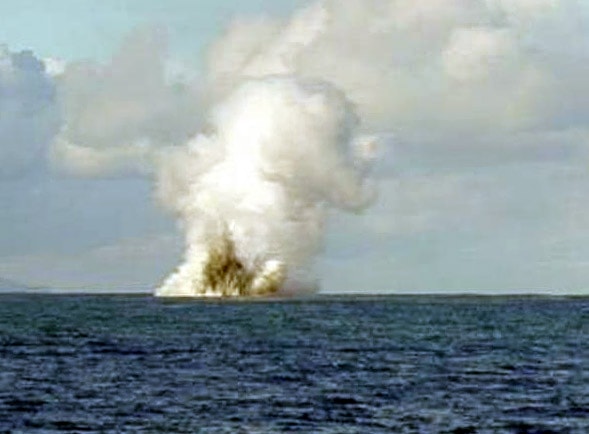
Riba Cave
Malaita
An impressive cave with an underground river and an opening – sinkhole. The cave contains a giant stalactite named Louis – an ancient worship site. Thousands of birds live in the cave.
Leru Cut
Central Province
Impressive underwater cave – deep cut in reef wall that goes under the island for 75 – 100 m, depth up to 20 m. In the end one can dive up into a small pool on the island, surrounded by lush jungle. The walls of this cave are covered with corals. One of the many interesting underwater caves in the region.
Matanikau Falls
Guadalcanal
Waterfalls fall into the cave from two sides. The cave is adorned with beautiful stalactites and stalagmites. During World War II, Japanese soldiers were hiding in this cave.
Ove geothermal area
Western Province
Spectacular geothermal area amidst the jungle. The whole hillside is cleared of vegetation by acidic sulfur deposits. Fumaroles, hot sulfur springs. Sulfuric springs flow into brackish Lake Ove – an important habitat of megapodes.
Mabuho Gorge
Guadalcanal
Beautiful, impressive gorge with vertical, layered walls rising directly from the shallow Mongga River.
Vihona Falls
Guadalcanal
Impressive waterfall in the rainforest of Lhamas mountains.
Tenaru Falls
Guadalcanal
Beautiful, free-falling 60 m tall falls on Tenaru River.
Rembokola alkaline springs
Central Province
Hot (80 °C) springs on the flanks of the volcano caldera. Springs are alkaline and are depositing silica sinter and travertine.
Biological wonders
Tetepare rainforest
Western Province
Tetepere island is not inhabited for more than 200 years and is one of the last undisturbed lowland rainforests (120 km²) in this part of the globe with several endemic species, including unique freshwater fish. Island has evil fame among the people of nearby islands: according to local legends numerous people died on Tetepare due to evil sorcerers and spirits and now it is considered to be an "island of ghosts".
Rainforest of Kolombangara caldera
Western Province
Intact rainforest with very high biological diversity, and numerous endemic species. Very high diversity of birds, frogs, orchids, and other life forms. Caldera is 4 km wide and 1 km deep, on the bottom are several sulfur vents.
Lake Tegano
Renell and Bellonna
Unique biotope, one of the largest lakes in the insular Pacific. Lake – former lagoon of the atoll with an area of 50,000 ha. Lake has rugged limestone banks and islands. In the lake and around it live numerous endemic animals (including four species of unique birds), algae, and diatoms. Banded sea snake Laticauda crockeri is endemic to the lake. Forests around the lake are undisturbed, there are 10 endemic species of plants including the orchid Dendrobium rennellii.
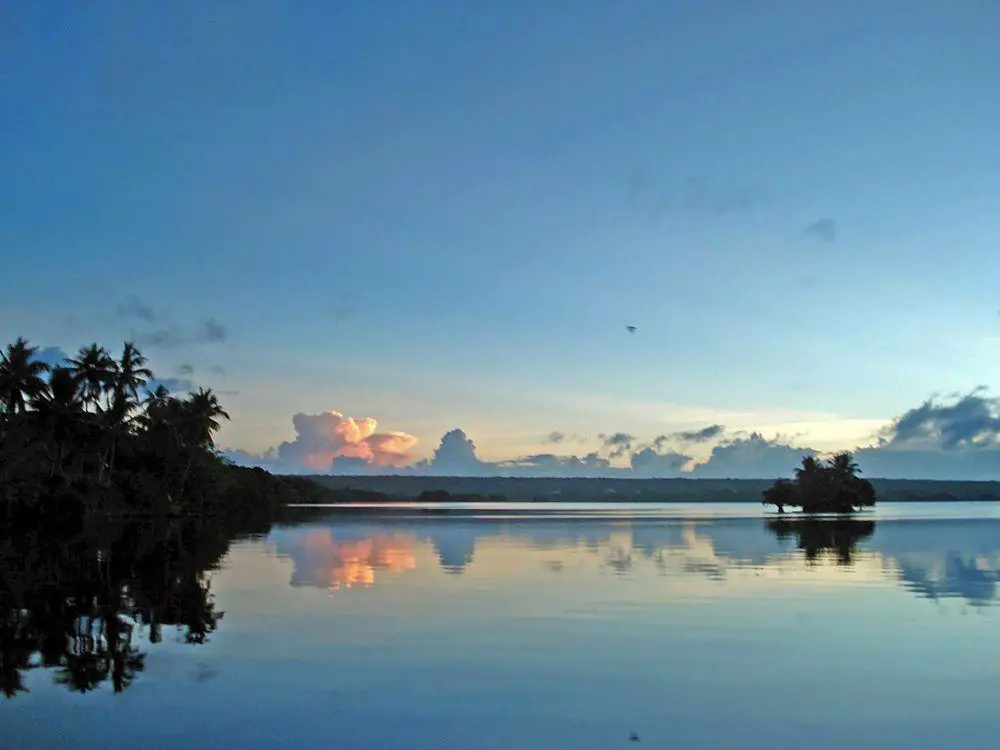
Rob Roy Island forest
Choiseul
The soil in Rob Roy Island has a very high content of heavy metals, making it poisonous for many species of plants. As a result here has formed an unusual ecosystem that contains only those plants, which are resistant to heavy metals.
Mborokua Island (Baruku Island)
Western Province
A small, isolated volcanic island with an intact ecosystem. Little explored. Stopover point for local warriors during their head-hunting expeditions.
Archaeological wonders
Vonavona Skull Island (Kindu, Kundu Hite)
Western Province
Impressive archaeological monument – a tent-shaped wooden shrine with decorated stone slab – door. This shrine sits on the top of a coral mound and is filled with skulls of deceased chiefs. It is possible that in the front of other skulls is located the skull of the feared head hunter-chief Higova (Ingova) who died in 1906. Around the shrine are broken shell rings – offerings.
Tapuna Caves
Renell and Bellonna
Caves where lived Hiti – Melanesian inhabitants of Bellona before the coming of Polynesians (around AD 1400). Remnants of stone buildings inside the caves still are visible. Site of legends.
Bao shrine complex
Western Province
A group of 18 shrines built from large basalt slabs and lined along a high ridge in the interior of New Georgia Island. Shrines were built around 1200 AD and represent the oldest monument of Roviana culture.
Poha Cave (Vatuluma Cave)
Guadalcanal
Important archaeological monument – a cave with ancient rock art. In excavations here were found artifacts left by people who lived here 1,300 – 1,000 BC.
Nusa Roviana hillfort and shrines
Western Province
Impressive settlement complex – 600 m long hillfort with 3 m high, 2 m wide, and 500 m long wall made of stone rubble. Here are located 13 skull shrines filled with skulls of deceased chiefs. A small terraced area in the highest place of the island contains a legendary shrine – Tiola or dog shrine with a stone carving – a dog’s head. The fortress was destroyed in 1892.
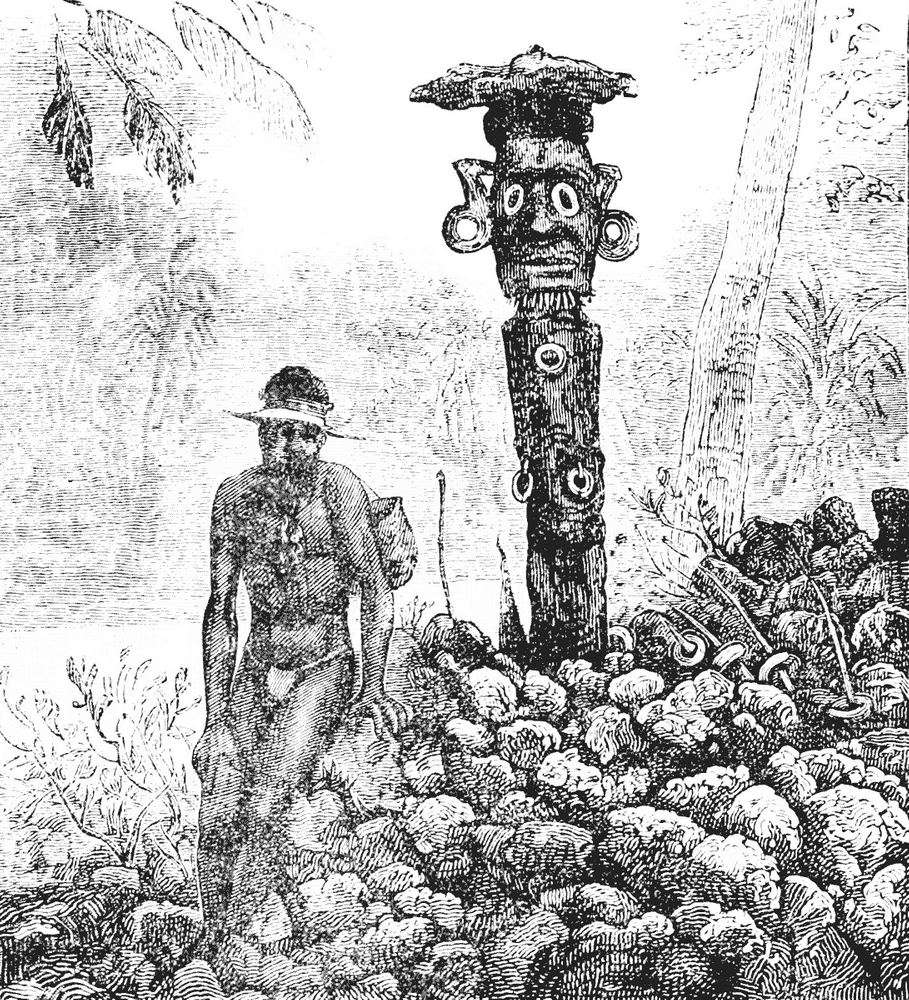
Honiavasa stone platforms and tables
Western Province
A cluster of 34 platforms that are lined along the coast of this barrier island. The area contains stone walls and table stones. Dated finds from the late 14th century AD.
Kekehe megalithic complex
Western Province
Group of stone structures – 20 major structures, mostly platforms paved with basalt and coral slabs. There are also upright basalt slabs and stone statues of ancestors.
Legendary wonders
Kakamora caves (Kakangora caves)
Makira-Ulawa
Legendary, inaccessible caves, where, according to locals, live Kakamora people – ancient dwarf people, just one meter tall, walking naked and endowed with incredible strength. Many believe that these people still exist.
Ghosts of San Jorge
Isabel
San Jorge island is the island of spirits of the deceased. Here are located caves with the skulls of the deceased. Locals and also tourists tell stories about strange phenomena on the island – singing in the night, a ceremonial place kept tidy by unknown people, etc.
 Recommended books
Recommended books
Headhunting in the Solomon Islands: Around the Coral Sea
This book is a facsimile reprint and may contain imperfections such as marks, notations, marginalia and flawed pages.
Solomon Islands Mysteries: Accounts of Giants and UFOs in the Solomon Islands
Near where the sunken warships of the Battle of Guadalcanal lie, glowing UFOs rise out of the Pacific, fly into the mountains, and disappear into jungle lakes. Here, a tropical paradise exists with inexplicable, ancient ruins and puzzling writings of an unknown culture. Steamy, rugged mountain ranges are inhabited by strange Sasquatch-like creatures. They have come down to the villages to kidnap the locals for generations. Terrifying stories of abduction and cannibalism are passed on by the villagers to their children. These are some of the incredible tales that the Solomon Islanders have lived with for decades and you will read about them in this spellbinding book.

